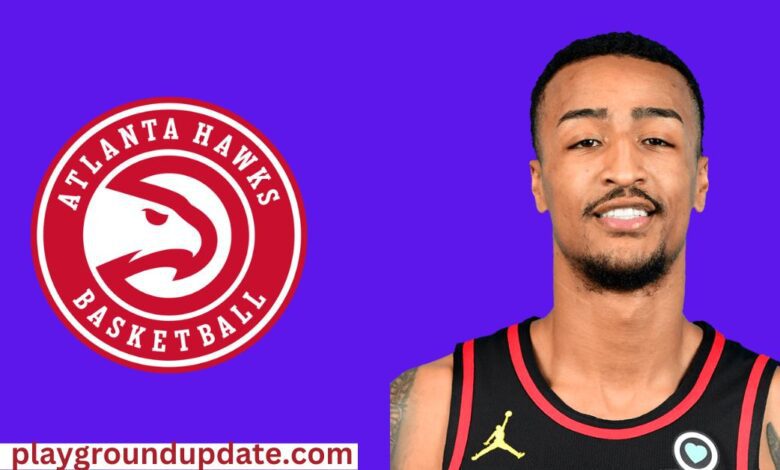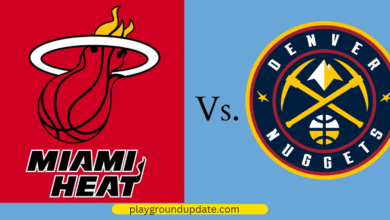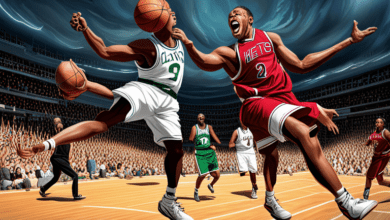Hawks Trade John Collins: Unveiling the Truth & Future Predictions!

Introduction
The Atlanta Hawks made headlines in the NBA world when they traded power forward John Collins to another team. This trade is expected to have a significant impact on the Hawks’ future, both positively and negatively. In this article, we will provide a detailed analysis of the trade, including the reasons behind it, the impact on the team, and our predictions for the future.
What Led to the Trade?
Collins’ contract status and potential future salary demands
One of the main reasons for the trade was Collins’ contract status. He was set to become a restricted free agent after the 2020-2021 season, and the Hawks were unwilling to pay his expected salary demands. Collins was looking for a maximum contract, which the Hawks were not willing to offer based on their long-term financial plans.
Inconsistencies in Collins’ on-court performances
Collins’ on-court performance was also a factor in the trade decision. While he showed flashes of brilliance, his performance was inconsistent at times. For example, he struggled with rebounding during the playoffs, which hurt the team’s chances of advancing. His defense was also a concern, as he often struggled to contain opposing players.
Chemistry issues with other players on the team
There were also chemistry issues between Collins and other key players on the Hawks. His playing style did not always mesh well with that of star guard Trae Young, which led to friction on the court. In addition, Collins had reportedly clashed with head coach Lloyd Pierce over his role on the team.
Franchise direction and long-term goals
The Hawks’ front office also had to consider the franchise’s long-term goals when making the trade. They wanted to build a team that was capable of competing for championships over the next few years, and they felt that Collins was not a key part of that plan. They needed to make a move that would allow them to add more talent to the roster and build for the future.
Collins’ Performance and Potential
Detailed analysis of Collins’ on-court statistics and impact
Collins was a productive player for the Hawks during his time with the team. He averaged 17.6 points per game and 7.4 rebounds per game over the past two seasons, and was a key part of their offense. However, his defense was often a liability, and his inconsistency was a concern.
Comparison to other players with similar roles and skillsets
When compared to other power forwards in the league, Collins’ performance was solid but not exceptional. His scoring and rebounding numbers were comparable to those of players like Christian Wood and Jerami Grant, but his defense was not as strong. In terms of overall impact on the court, Collins was a good but not great player.
Discussion of Collins’ potential future growth and ceiling
Collins is still a relatively young player, and there is potential for him to improve and grow in the future. However, his defensive deficiencies and inconsistent performance make it difficult to project him as a future star in the NBA. He has a high ceiling, but it remains to be seen whether he can reach it.
Team Chemistry and Fit
Examination of Collins’ fit within the Hawks’ playing style and system
Collins had a somewhat awkward fit within the Hawks’ playing style and system. He was primarily a frontcourt scorer and rebounder, which did not always complement the ball-dominant style of Trae Young. The Hawks needed players who could fit seamlessly into their system and contribute in multiple areas on the court.
Analysis of his compatibility with other key players on the team
Collins’ chemistry with Trae Young was a concern for the Hawks. They needed players who could play well alongside Young and help him develop into an elite player. Collins’ inconsistent performance and defensive struggles made it difficult for him to fit well into the team’s plans for the future.
Importance of team dynamics and communication in the NBA
Team dynamics and communication are essential for any NBA team to be successful. The Hawks needed players who could work well together and support each other on and off the court. Collins’ reported clashes with other players and coaching staff may have negatively impacted the team’s chemistry and hindered their success.
Contract Negotiations and Salary Cap
Explanation of the NBA’s salary cap and its impact on team decisions
The NBA’s salary cap is a complex system that dictates how much money teams can spend on players. The Hawks had to consider their long-term financial plans when deciding whether to offer Collins a maximum contract. They needed to balance their desire for success with the reality of their financial limitations.
Discussion of Collins’ contract status and potential future demands
Collins was looking for a maximum contract, which the Hawks were unwilling to offer based on their long-term financial plans. He had the potential to demand a high salary as a restricted free agent, which could have tied up the Hawks’ finances for years to come. The Hawks needed to make a move that would allow them to remain financially flexible.
Analysis of the Hawks’ financial situation and future spending limitations
The Hawks had to consider their future spending limitations when making the trade. They needed to remain financially flexible in order to make moves that would help them compete for championships in the future. By trading Collins, they were able to add more talent to the roster without committing to a massive long-term contract.
Trade Outcomes and Repercussions
Overview of the players and assets received in the trade
The Hawks received multiple players and draft picks in the trade, including center Clint Capela, guard Kevin Porter Jr., and a future first-round pick. These assets will help the Hawks build for the future and remain competitive in the short term.
Evaluation of the trade’s potential short-term and long-term effects on the Hawks
The trade is expected to have both short-term and long-term effects on the Hawks. In the short term, they will miss Collins’ scoring and rebounding ability, but they have added more talent to the roster that will help them remain competitive. In the long term, the trade will help them remain financially flexible and build a team capable of competing for championships.
Comparison to other recent NBA trades and their outcomes
The trade is comparable to other recent NBA trades that involved players who were set to become free agents. The Hawks took a cautious approach, looking to add more talent to the roster while avoiding a massive long-term contract. Other teams have taken similar approaches in recent years with mixed results.
Predictions and Projections
Future predictions for John Collins’ career and impact on his new team
Collins has the potential to be a productive player for his new team, and could even become an All-Star if he continues to develop. However, his defensive struggles and inconsistency will remain a concern. He has the potential to be a key part of the team’s success, but it remains to be seen whether he can reach his full potential.
Analysis of the Hawks’ future direction and plans
The Hawks are building towards long-term success, and will continue to look for ways to add more talent to the roster while remaining financially flexible. They have a young core of players that includes Trae Young and Kevin Huerter, and will look to build around them in the coming years.
Projections for the team’s success in the upcoming NBA seasons
The Hawks will likely take a step back in the short term as they adjust to life without Collins. However, they have added more talent to the roster and will remain competitive in the short term. In the long term, they have the potential to build a championship-caliber team if they continue to make smart moves and develop their young players.
Fan and Media Reactions
Overview of fan and media reactions to the trade
The trade has generated mixed reactions from fans and the media. Some see it as a smart move by the Hawks, while others question the team’s decision to trade away a productive player. There has been a lot of debate and discussion surrounding the trade, with different opinions on its potential impact on the team.
Analysis of common arguments for and against the trade
Those in favor of the trade believe that it was necessary to avoid a massive contract for Collins, and that the assets received in the trade will help the team remain competitive. Those against the trade believe that Collins was a key part of the team’s success and that his departure will hurt the team’s chances of winning.
Discussion of the impact of fan and media reactions on the team
Fan and media reactions can have a significant impact on a team’s morale and success. The Hawks will need to remain focused on their long-term goals and not be swayed by public opinion. The front office has made a decision that they believe is best for the team, and they will need to stick to that decision regardless of public perception.
Conclusion
The trade of John Collins was a significant move for the Atlanta Hawks, and will have a major impact on the team’s future. While it was a difficult decision to make, the Hawks needed to think long-term and consider their financial limitations when making the trade. They received valuable assets in return, and will remain competitive in the short term while building for the future. Only time will tell whether the trade was a success or a failure, but the Hawks are confident in their ability to build a championship-caliber team.
FAQs
Will John Collins be a franchise player for his new team?
Collins has the potential to be a productive player for his new team, but it remains to be seen whether he can reach his full potential. His defensive struggles and inconsistency will remain a concern, but he could become an All-Star if he continues to develop.
Was the trade a good decision for the Hawks?
The trade was a difficult decision for the Hawks, but it was necessary to avoid a massive contract for Collins and remain financially flexible. They received valuable assets in return, and will remain competitive in the short term while building for the future.
Who won the trade: the Hawks or the other team?
It is too early to tell who won the trade, as the impact of the players and assets received will not be fully realized for several years. However, the Hawks received valuable assets in return for Collins and will remain competitive in the short term while building for the future.
What can the Hawks do to replace Collins’ contributions on the court?
The Hawks will need to look for ways to replace Collins’ scoring and rebounding ability, and will likely need multiple players to step up and contribute in his absence. They have added more talent to the roster in the trade, which will help them remain competitive while they search for a long-term solution.
Also Read–
How to Win at Basketball Betting
How to Choose the Best Basketball Shoes for Performance and Comfort
How to Boost Your Basketball Skills: Essential Drills and Exercises






One Comment